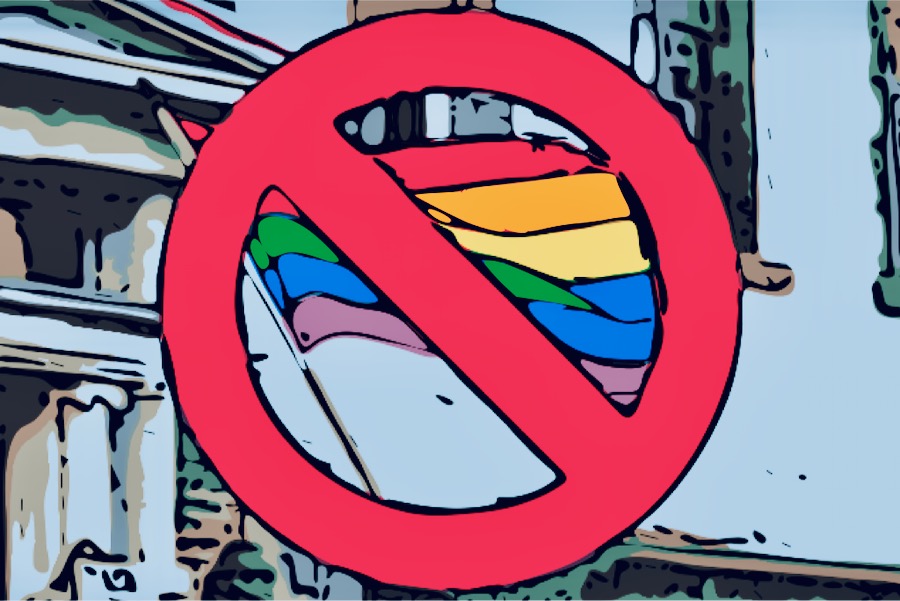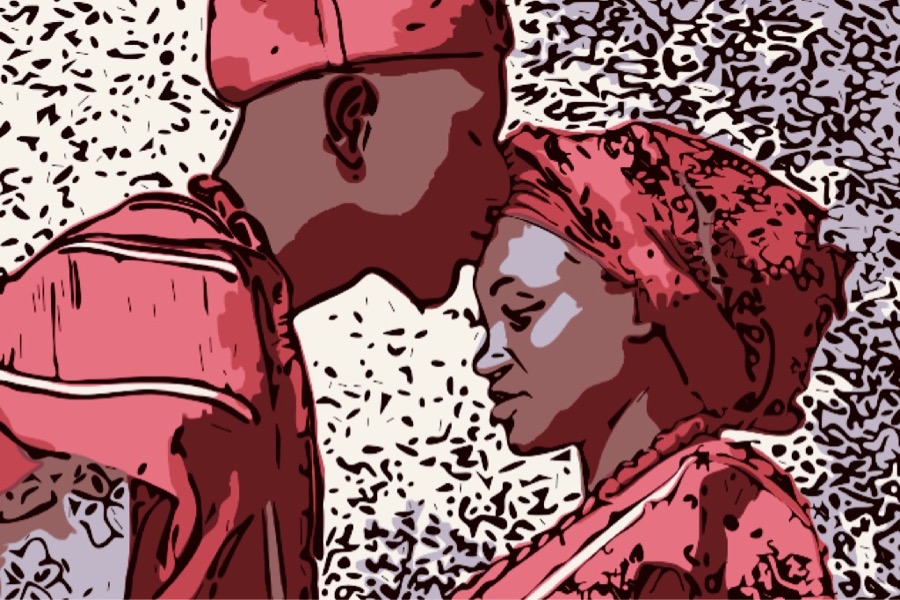For some time now, many Polish municipalities, provinces and regions have been approving a series of resolutions which, more or less explicitly, aim to target and exclude the country’s sexual minorities: to inform about the situation and to make world public opinion aware of the problem’s extension, Jakub Gawron created, with the help of other activists, an “Atlas of Hate,” where he collects all the decisions of local authorities against LGBTQIA people (lesbian, gay, bisexual, transgender, queer, intersex and asexual). An immense and extremely useful work that he presents today in this interview with Il Grande Colibrì.
You published an “Atlas of Hate,” which lists all the local governments that issued resolutions for “family protection” or to create the infamous “LGBT-free zones.” What are these resolutions?
The first type of resolution is opposition to “LGBT ideology“. It is based on a template promoted by local government officials from Lublin (MEP Elżbieta Kruk and academic teacher Mieczysław Ryba) and adopted with smaller or larger modifications by other local government officials. You can recognize it by some characteristic expressions such as “installing lighthouse keepers,” “officers of political correctness,” “imposing exaggerated problems and artificial conflicts,” or the final reference to the thousand-year history of the baptism of Poland.
Read also: “I Drew a Same-Sex Family: Now I Have to Face Three Trials”
The second type of resolution is the Regional Charter of Family Rights promoted by the ultra-conservative organization Ordo Iuris. It is a non-binding collection of hints of bureaucratic harassment aimed at non-governmental organizations wishing to organize anti-discrimination classes in schools and other local government facilities. It proposes many amendments to local laws to, among other things, prevent school anti-discrimination classes and that local governments provide facilities for LGBTQ events, etc.
What are the main differences between these two resolutions?
The first model of resolution, the one on “ideology”, directly points out and excludes the LGBTQIA community, while the second one does it indirectly, promoting a restricted family pattern at the expense of other models. Sometimes it also happens that councillors add justifications to this “neutral” projects that directly exclude the LGBTQIA community. Despite their lack of legal force, they are a formal tool for informal pressure on employees of public institutions. They point directly to LGBTQIA people and create an atmosphere in which they are convinced that anti-discrimination and equality classes are, at best, a hot potato from which it’s safer to stay away.
 Ordo Iuris, the organization you mentioned earlier, wants to take you to the courts precisely because they say that the resolution to “protect the family” is not “against LGBTQIA people” and therefore shouldn’t appear in the Atlas of Hate…
Ordo Iuris, the organization you mentioned earlier, wants to take you to the courts precisely because they say that the resolution to “protect the family” is not “against LGBTQIA people” and therefore shouldn’t appear in the Atlas of Hate…
We believe that also Local Government Charters on Family Rights are resolutions to be included in the Atlas of Hate. In our opinion, they contain discrimination, violate the principle of equal treatment, exclude some people, even if they do it more subtly, not directly. If lawsuits are actually filed, we will present arguments and evidence in court that will confirm it.
Let’s go back for a moment to the resolutions on “LGBT-free zones”: what are they?
These anti-LGBT resolutions, adopted by nearly 100 municipalities in Poland, have no legal value. But at the same time, they have great symbolic value. It’s a signal sent to the LGBTQIA people living in the so-called “LGBT-free zones” that local authorities see no place for them in the city or town where they were born.
Read also: Belarus LGBT Activist Fined for Solitary “Mass Protest”
Someone in Italy described “LGBT-free zones” as areas with barbed wire, etc. What is really going on in these areas?
The resolutions officially invite officials to sanction informally (but sometimes also formally) people and organizations wishing to carry out any pro-equality and anti-discrimination measures. The principal may summon a student who wants to organize a “rainbow Friday” [student event to show support for the LGBTQIA community; ed]. A similar fate may be encountered by a teacher who will assume the function of “lighthouse keeper”, which means that, after a substantive training by an NGO, she will support LGBTQIA students. NGO educators are treated by default as potential depraved who should be carefully monitored.
Local governments will not be able to provide their space to LGBTQIA organizations for film screenings, workshops, conferences or author’s meetings on LGBTQIA subjects.
Last year we often saw nationalist groups violently attacking the Pride marches in Poland: do you think this escalation of hatred and violence is linked to the policies of the conservative ruling party, Prawo i Sprawiedliwość (Law and Justice, PiS), and its allies?
Yes, of course. The PiS gave the signal to attack. A year ago the party president, Jarosław Kaczyński, in the electoral conventions in Katowice and Jasionka, a village near Rzeszów, in sharp words called for “defending the family.” And then the whole propaganda machine went into operation. As we said earlier, MEP Elżbieta Kruk and academic teacher Mieczysław Ryba prepared a model resolution against “LGBT ideology“. MP Przemysław Czarnek, who was the voivode of the Lublin region, sent the text to the municipalities and poviats of the region. The first local governments to adopt it were the small municipalities of Mełgiew and Ostrów Lubelski and the city of Świdnik.
 The resolutions are mainly approved because of the high mobilization of PiS councillors: around 90% of them vote in favour. They also have a big advantage in absolute numbers. Furthermore, the pro-government press and the subordinated state television support PiS and fuel a spiral of hatred against the LGBTQIA community.
The resolutions are mainly approved because of the high mobilization of PiS councillors: around 90% of them vote in favour. They also have a big advantage in absolute numbers. Furthermore, the pro-government press and the subordinated state television support PiS and fuel a spiral of hatred against the LGBTQIA community.
The PiS agenda on LGBTQIA issues is clear, but what are the proposals of the liberal opposition?
Platforma Obywatelska (Civic Platform; PO) is against marriage equality. The party wants to accept only civil partnerships. Politicians avoid this topic, not realizing that acceptance of marriage equality among their voters is much greater than they think. On the other hand, councillors from Koalicja Obywatelska (Civic Coalition; KO), the pro-European alliance that includes PO, are the only real force opposing anti-LGBTQIA resolutions. About 70% of the KO councillors vote against them, the rest abstains or doesn’t vote. However, PO councillors are only one-eighth of the PiS ones.
Read also: The Polish LGBT Community Fights the Right-wing Government
Aside from politics, how would you describe the daily life of LGBTQIA people in Poland? Are there problems, for example, in finding a home, in finding work, in relationships with the family?
Physical violence is rare. Much more common is the constant fear of violence. It’s fueled by a suffocating atmosphere and verbal attacks on the Internet. People rely only on themselves and associations that are not present in the whole territory. The police only deal with the most extreme cases of physical violence, and of course, does so only for PR reasons. Hate speech reports are ignored and discontinued. That’s why a lot of people from the community are reluctant to talk about their private lives and maintain superficial social contacts with most people because they assume that they are homophobes.
What are the prospects for LGBT people in Poland, in your opinion? How do associations fight discrimination and wrong information?
The community is more and more organized. About 30 equality marches took place last year, 20 of which made their debut in the last two years. A similar number was expected this year, although date changes because of coronavirus are not excluded. Marching committees work more closely together. They exchange experiences at congresses and conferences. We are slowly changing grassroots political reality. When there will be a change in power, which may occur under the influence of unexpected factors, these changes will significantly speed up.
Alessandro Garzi
©2020 Il Grande Colibrì
immagini: Atlas nienawiści / elaborazioni da mathiaswasik (CC BY-SA 2.0) / da PNGimg (CC BY-NC 4.0)




